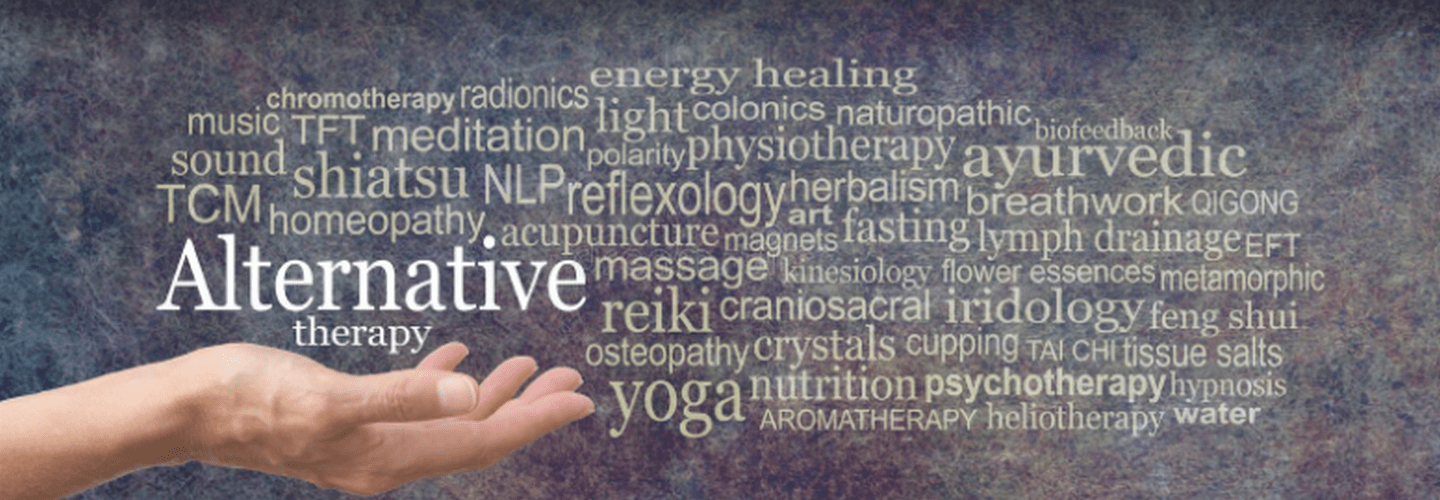
Tap into your inner potential and boost self-confidence through self-hypnosis techniques. By accessing your subconscious mind, you can rewire negative beliefs, confront deep-seated insecurities, and redefine your self-perception. Visualize success, employ positive affirmations, and activate neural pathways linked to confidence. From conquering public speaking anxiety to excelling in job interviews, self-hypnosis offers real-life applications across various fields. Tailor techniques to your specific needs, challenge underlying factors hindering confidence, and align with your goals for best results. Immerse yourself in the transformative power of self-hypnosis and unlock the confidence within you.
Key Takeaways
- Visualize success scenarios to boost confidence.
- Use positive affirmations for self-assurance.
- Leverage emotions and imagination for confidence building.
- Overcome negative thought patterns through self-hypnosis.
- Customize techniques for personalized and effective results.
Understanding the Power of Self-Hypnosis
Inducing a hypnotic state on oneself to access the subconscious mind is a powerful technique known as self-hypnosis. It serves as a transformative tool for enhancing self-confidence. Through self-hypnosis for confidence, individuals can explore their inner beliefs, reprogram negative thought patterns, and boost self-esteem effectively. By tapping into the subconscious mind, one can address deep-seated insecurities and self-doubt that often impede confidence levels.
Visualization is a key aspect of self-hypnosis, where individuals vividly imagine themselves as confident and successful. This technique helps in reinforcing positive self-perceptions and reshaping the way one views oneself. Affirmations play a significant role in self-hypnosis for confidence by instilling empowering beliefs and encouraging a more optimistic outlook on life. By repeating affirmations during the hypnotic state, individuals can replace self-limiting beliefs with affirming statements that support their personal development goals.
Moreover, through exploration in self-hypnosis, individuals can mentally practice confident behaviors, preparing themselves to face real-life situations with a newfound sense of self-assurance. Research underscores the efficacy of self-hypnosis in enhancing self-confidence and achieving personal growth milestones. By harnessing the power of the subconscious mind through self-hypnosis, individuals can access their full potential and cultivate a strong, unwavering belief in themselves.
Addressing Root Causes of Low Confidence
Uncovering the roots of low confidence is an empowering journey that allows individuals to identify negative beliefs and explore past experiences that shape their self-perception.
By delving into the subconscious mind through self-hypnosis, one can gain a deeper understanding of the triggers that undermine self-confidence.
This process sets the stage for reframing negative thought patterns and building a strong foundation of self-assurance.
Identify Negative Beliefs
Identifying and dismantling negative beliefs is a pivotal step in the journey towards cultivating unwavering self-confidence through self-hypnosis. By utilizing self-hypnosis techniques, individuals can explore their subconscious beliefs to uncover the root causes of low confidence.
Addressing these negative beliefs is fundamental in laying the groundwork for enhanced self-esteem and confidence. It is essential to recognize and challenge negative self-perceptions as they play a significant role in influencing one's confidence levels.
Through self-hypnosis, individuals can engage in introspection, gaining a deeper understanding of the beliefs that impact their confidence. This process empowers individuals to take control of their thoughts and beliefs, paving the way for a more confident and self-assured self.
Explore Past Experiences
To deepen self-awareness and unravel the origins of diminished self-confidence, individuals can explore their past experiences through the lens of self-hypnosis. By delving into the subconscious beliefs and hidden insecurities that lie beneath the surface, self-hypnosis techniques can illuminate the root causes of low self-confidence.
Reflecting on past experiences during self-hypnosis sessions allows individuals to identify patterns and behaviors that have shaped their self-esteem. Through this introspective journey, one can work towards resolving deep-seated issues that may be holding them back from embracing their full potential.
Empowered by the insights gained from exploring past experiences, individuals can foster a greater sense of self-confidence and pave the way for personal growth and transformation.
Effective Hypnotherapy Techniques for Confidence

Awaken the power within by embracing visualization techniques that pave the way for unshakable confidence.
Through the practice of positive affirmations, one can cultivate a mindset of unwavering self-assurance.
These foundational practices set the stage for a journey towards self-belief and empowerment.
Visualization for Confidence
Visualizing confident and successful scenarios through hypnotherapy serves as a powerful tool to enhance self-confidence and empower individuals to achieve their goals. This technique allows individuals to vividly imagine themselves achieving their aspirations, reinforcing positive self-perception and overcoming self-doubt.
Through visualization, individuals can reprogram their subconscious mind, activating neural pathways associated with confidence and self-belief.
- Enhances self-confidence through mental imagery
- Reprograms the subconscious for positive self-perception
- Activates neural pathways linked to confidence and self-belief
Positive Affirmations Practice
Harnessing the power of positive affirmations in hypnotherapy amplifies self-confidence by instilling empowering beliefs and banishing self-doubt from the subconscious mind. Positive affirmations are a potent tool to reprogram beliefs, boost self-confidence, and eliminate negative self-talk.
By incorporating these affirmations into daily self-hypnosis routines, individuals can witness a transformation in their self-esteem and overall confidence levels. The repetitive nature of affirmations helps in embedding these empowering messages deep within the subconscious, leading to a shift in mindset towards greater self-belief and self-worth.
Consistent practice of positive affirmations can pave the way for a more confident and self-assured version of oneself, creating a strong foundation for personal growth and success.
Real-Life Applications of Self-Hypnosis
How can self-hypnosis be applied in real-life situations to enhance confidence and performance? Self-hypnosis techniques offer a powerful tool for individuals looking to overcome various challenges and excel in different areas of their lives. Here are some real-life applications of self-hypnosis:
- Public Speaking Preparation: Self-hypnosis can help individuals manage public speaking anxiety, boost their confidence, and improve their overall performance on stage.
- Job Interviews: By using self-hypnosis techniques, individuals can increase their self-belief, reduce anxiety, and present themselves more confidently during job interviews.
- Performance Anxiety: Whether in sports, academics, or artistic endeavors, self-hypnosis can assist in calming nerves, enhancing focus, and optimizing performance under pressure.
Athletes, students, professionals, and individuals from various walks of life can benefit from incorporating self-hypnosis into their routines. By addressing confidence issues, self-belief, assertiveness, performance anxiety, memory improvement, social anxiety, and public speaking preparation through self-hypnosis, individuals can harness their full potential and achieve success in their endeavors. Embracing the power of self-hypnosis can lead to transformational growth and a more empowered way of confronting life's challenges.
Choosing the Right Self-Hypnosis Approach

To effectively utilize self-hypnosis for enhancing self-confidence, individuals must carefully select the self-hypnosis approach that aligns best with their personal preferences and confidence goals. Different self-hypnosis approaches, such as visualization, affirmations, and rehearsal techniques, offer unique ways to boost self-confidence. Self-hypnosis serves as a powerful tool that enables individuals to explore their subconscious beliefs, addressing any underlying factors that may be hindering their confidence. By choosing the right self-hypnosis approach, individuals can tailor techniques to their specific needs, enhancing the effectiveness of their confidence-building efforts.
The key to success lies in finding a self-hypnosis approach that resonates with individual preferences and aligns with the desired outcomes. Whether it be through guided visualizations that instill a sense of self-assurance or affirmations that reframe negative beliefs into positive affirmations, the chosen approach should empower individuals on their journey to increased confidence. Self-hypnosis offers a flexible and empowering way to work on self-confidence, allowing individuals to practice in various situations and settings that require a boost in self-assurance.
Self-Hypnosis Techniques for Confidence Building
Self-hypnosis techniques offer a transformative pathway to bolstering self-confidence through the power of visualization and positive affirmations. By incorporating these techniques into your daily routine, you can effectively boost confidence and overcome negative thought patterns.
Here are some key self-hypnosis techniques for confidence building:
- Imagining Success Scenarios: Visualizing yourself succeeding in various situations can help instill a sense of confidence and belief in your abilities. By mentally rehearsing these scenarios during self-hypnosis sessions, you can prepare yourself to face challenges with assurance and poise.
- Positive Affirmations: Repeating positive affirmations during self-hypnosis can rewire negative thought patterns and cultivate a more optimistic mindset. Affirmations such as 'I am confident and capable' can help build self-confidence from within, empowering you to tackle obstacles with self-assurance.
- Emotional Triggers and Imagination: Engaging your emotions and imagination during self-hypnosis can amplify the effectiveness of confidence-building techniques. By tapping into your emotions and envisioning yourself achieving success, you can strengthen your self-confidence and belief in your abilities.
Incorporating these self-hypnosis techniques into your daily routine can have a profound impact on your self-confidence levels, enabling you to navigate life's challenges with newfound assurance and resilience.
Exploring Hypnotherapy Effectiveness

With a growing body of research highlighting its efficacy in enhancing various aspects of psychological well-being and performance, hypnotherapy stands as a powerful tool for exploring and optimizing human potential. Hypnotherapy can help individuals improve their confidence by reinforcing positive beliefs and behaviors through the power of suggestion and focused attention. This technique, known as 'Hypnosis for Confidence,' has been proven effective in boosting self-confidence and self-esteem across various domains.
Research studies have shown that hypnotherapy is particularly effective in building confidence in areas such as public speaking, sports performance, and managing anxiety and depression. By tapping into the subconscious mind, hypnotherapy works on a deeper level to instill confidence and self-belief. For individuals struggling with chronic substance use disorders, self-hypnosis techniques have shown promise in improving self-esteem, which is often an essential factor in recovery and rehabilitation.
In academic settings, hypnotherapy has been utilized to enhance confidence among university students, especially in situations requiring public speaking or performance. By leveraging the power of suggestion and visualization, individuals can overcome self-doubt and tap into their full potential.
Finding the Ideal Self-Hypnosis Method
Discovering Confidence: Finding the ideal self-hypnosis method involves exploring visualization, affirmations, and relaxation techniques for best results. When it comes to building self-confidence through self-hypnosis techniques, customization is key.
Here are three essential elements to ponder in your self-hypnosis journey:
- Personalized Routines: Tailoring self-hypnosis techniques to fit your unique personality and needs can greatly enhance the effectiveness of the practice. By customizing your self-hypnosis routine, you can address specific confidence issues that resonate with you on a deeper level.
- Mental Rehearsal: Engaging in mental rehearsal during self-hypnosis sessions can help you visualize successful outcomes and reinforce a positive mindset. By vividly imagining yourself achieving your goals and overcoming obstacles, you can boost your confidence and self-belief.
- Positive Self-Talk and Confidence Triggers: Incorporating positive affirmations and identifying confidence triggers can empower you to cultivate a more optimistic outlook. Using encouraging statements and associating certain cues with feelings of confidence can create a strong foundation for building and sustaining self-assurance.
Frequently Asked Questions
What Are the 4 Steps of Self-Hypnosis?
The 4 steps of self-hypnosis involve:
- Deep relaxation
- Mental focus
- Visualization exercises
- Breath control
These steps are essential for inducing a hypnotic state, enhancing receptivity to positive affirmations, and reprogramming the subconscious mind.
Utilizing self-guided meditation techniques can aid in achieving profound relaxation and heightened awareness, facilitating a more effective self-hypnosis session.
Mastering these steps can lead to transformative personal growth and enhanced well-being.
What Are Self-Hypnosis Techniques?
Self-hypnosis techniques encompass methods such as deep relaxation, positive affirmations, visual imagery, and mental focus.
These practices enable individuals to tap into their inner strength, fostering personal empowerment and confidence building.
By engaging in self-hypnosis regularly, individuals can harness the power of their subconscious mind to make positive changes in their lives.
These techniques offer a pathway to self-improvement and self-empowerment, leading to lasting transformations in one's confidence and self-assurance.
What Is the Best Way to Improve Self Confidence?
In cultivating self-confidence, harness the power of positive affirmations, visualization techniques, and fostering a strong mind-body connection.
Building self-esteem involves embracing inner strength, fostering an empowering mindset, and boosting confidence.
By focusing on these aspects, individuals can set out on a journey of self-improvement that is transformative and empowering.
Embracing these practices can lead to a profound shift in one's self-perception and overall well-being.
Can You Teach Yourself Self-Hypnosis?
Yes, self-hypnosis can be self-taught through various resources like books, online tutorials, and workshops.
By understanding self-hypnosis benefits and debunking self-hypnosis myths, individuals can progress in their self-hypnosis practice.
While self-hypnosis success requires dedication and consistency, accessing self-hypnosis resources can aid in overcoming self-hypnosis challenges.
Empowering individuals to take control of their mental processes, self-hypnosis is a powerful tool for personal growth and development.
Conclusion
To sum up, harnessing the power of self-hypnosis techniques can lead to significant improvements in self-confidence by addressing underlying issues and promoting positive beliefs.
By exploring various hypnotherapy methods and finding the right approach, individuals can tap into their full potential and cultivate a strong sense of self-assurance.
Embracing the journey of self-discovery through self-hypnosis can pave the way for a brighter, more empowered future filled with limitless possibilities.





